
 Blain Potvin
The Hockey Writers
Blain Potvin
The Hockey Writers
44
Reads
0
Comments
Top 3 Montreal Canadiens Playoff Performances Since 2000
As the Montreal Canadiens and their fans enjoy the surprising play-in series victory versus the Pittsburgh Penguins, it’s worth looking back at the franchise’s top individual playoff performances of the 21st century. These performances are marked by clutch scoring, big saves, and even inspired leadership. No doubt this list may have some debatable entries. If that’s the case, please let me know in the comments section.
Related: Canadiens’ Biggest Draft Busts of the Last Decade
Here is a list of some of the best playoff performances by a Canadien since 2000.
Jaroslav Halak, 2010
The unexpected 2010 playoff run that propelled the eighth-seeded (19th overall) Habs into the Eastern Conference Final has almost reached mythical status. Jaroslav Halak became a cult hero due to his otherworldly goaltending performance, a level of play he has yet to replicate.
Entering the playoffs, he was battling with Carey Price for crease time. Despite splitting games almost equally all season, Halak had a .924 save percentage (SV%) in 45 games, which edged Price’s .912 SV%, earning Halak the confidence of head coach Jacques Martin over the then 23-year-old Price.
In the opening series versus Alex Ovechkin’s Washington Capitals, the Canadiens faced the NHL’s top offensive team. Ovechkin had completed a 50-goal season that earned him a Hart Trophy nomination. Despite solid goaltending from both Halak and Price – Price played one game – the Habs fell into a 3-1 series deficit. This is the moment when Halak won the hearts of fans. He played with authority and shut the door, allowing three goals on 133 shots in the final three games for a .977 SV%.
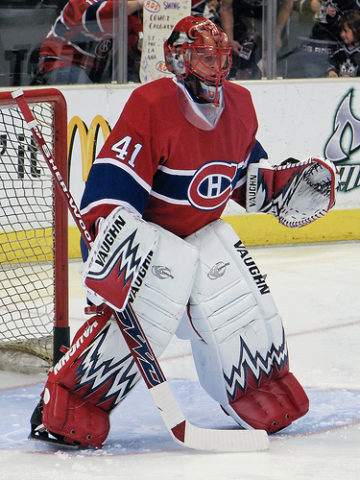
After the come-from-behind series win, Halak and the Habs faced the defending Stanley Cup champion Pittsburgh Penguins. He played all but 14 minutes against Sidney Crosby, Evgeni Malkin, and the fifth-best offensive team that season, putting up a .927 SV% in the seven-game series.
Related: Why the Vezina Trophy Deserves Its Name
The Pens had a 3-2 series lead going back to Montreal for Game 6, and the teams traded goals in the first two periods, with Pittsburgh dictating the pace of the game thanks to their puck possession game. But, facing elimination, the Habs jumped out to a late lead as Halak again shut the door, stopping 34 of 37 shots to hold onto a 4-3 victory and force a Game 7.
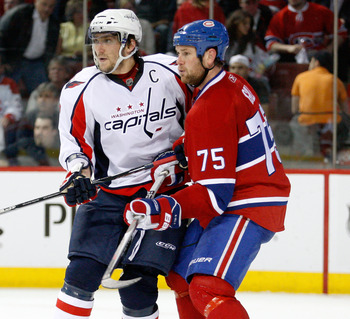
The Canadiens faced elimination for the fourth time in the playoffs against an overwhelming favourite. The Penguins controlled the play for most of the game. Crosby had an 81.7% Corsi For in just over 28 minutes of ice time, generating 45 shot attempts for his line. This provided Halak with a heavy workload, but thanks to his efforts, Crosby was held scoreless. Overall, Halak made 37 saves on 39 shots for an impressive .949 SV% to lead the Canadiens to a 5-2 victory.
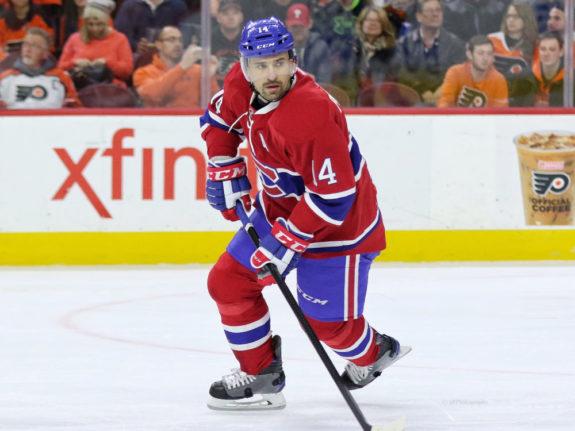
The wheels fell off in the Eastern Conference Final versus the Philadelphia Flyers. After winning back-to-back Game 7s, Halak looked tired. His numbers dropped from a .927 SV% vs Pittsburgh to a woeful .884 SV% versus Philadelphia. However, he did look strong in Game 3 when the Canadiens managed their only victory of the series.
Unfortunately, perhaps due to the fatigue of carrying the team through two seven-game series against the defending Presidents’ Trophy and Stanley Cup champs, Halak was unable to replicate his performance from the previous series. Without his clutch play, the Canadiens’ Cinderella story was over.
Halak was traded to the St. Louis Blues soon after the playoffs to make way for Price to become the starter. Halak’s 2010 Playoffs performance was masterful, due not only to his acrobatic saves but also the sheer amount of shots he faced. The 2009-10 Canadiens had low expectations entering the playoffs, but Halak provided fans with a performance that will be talked about for years.
Micheal Cammalleri, 2010
For the Canadiens’ centennial season, general manager Bob Gainey decided he wanted a more competitive team, and quickly. During the 2009 offseason, he acquired Scott Gomez, a top-line center from the New Jersey Devils, and, soon after, signed free agents Brian Gionta and Mike Cammalleri.
Thanks to the influx of skill Cammalleri provided, the undersized Canadiens sneaked into the playoffs as the eighth seed with 88 points and were the clear underdog against a Capitals team that finished the season with 121 points and the Presidents’ Trophy. Cammalleri had just completed his first season in Montreal with 26 goals in 65 games.
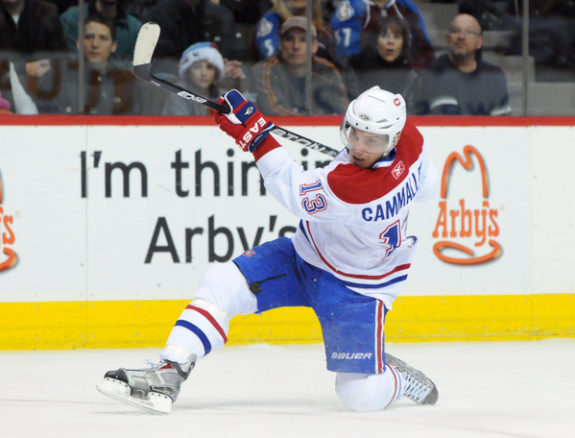
He played a key role in the mythical 2010 playoff run. While Halak provided a legendary goaltending performance, Cammalleri was the offensive force. He scored five goals and 10 points in the seven-game series versus the Caps. His offence, including the game-winning goal in Game 6, led the team to the second round.
In the second round versus Pittsburgh, his goal-scoring increased to a goal-per-game average, with seven goals and eight points in the seven-game series. He scored the game-winning goal in a crucial Game 2, which split the series as they returned to Montreal for Game 3. Cammalleri also scored key tying goals in Games 6 and 7. The Canadiens built upon that confidence, Cammalleri’s scoring, and Halak’s goaltending to defeat the defending Stanley Cup champions in seven games.
Like Halak, Cammalleri’s playoff magic ran out in the conference final versus the Flyers. He only scored one goal in the five-game series, and the Canadiens were shut out three times. Despite the disappointing end, his offensive performance put him in elite company. He ranks fourth in franchise history for goals scored in a single playoffs behind Hall of Famers Newsy Lalonde (17 goals in 1918), Yvan Cournoyer (15 Goals n 1973), and Frank Mahovolich (14 goals 1971).
Jose Theodore, 2002
Coming off a Hart and Vezina Trophy season in 2001-02, the Canadiens earned a playoff spot only to face their notorious playoff rival in the first round, the Boston Bruins. The Bruins were the top seed while the Canadiens were the eighth seed.
The magic of this series began with the emotional return of captain Saku Koivu from Non-Hodgkin’s Lymphoma treatments on 9 April 2002 for the final three games of the season. His determination seemed to inspire the underdog Canadiens.
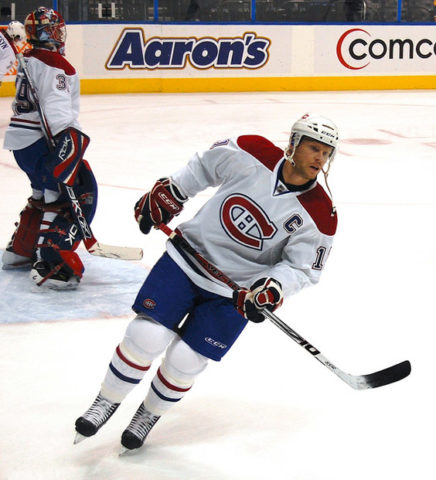
Game 1 was no different than the regular season: the Canadiens were outshot. However, as had happened all season, Jose Theodore stood tall in the crease, stopping 30 of the 32 shots in a 5-2 victory as the Habs took 1-0 lead in the series. Game 2 saw a motivated Bruins team dominate, this time finding a way to get five goals past Theodore to split the series as it headed back to Montreal.
Games 3 and 4 were a mirror image of Games 1 and 2 in Boston. Timely scoring and power-play goals helped the Canadiens win Game 3. Meanwhile, the Habs’ undisciplined play, giving up three power-play goals on nine opportunities cost them Game 4, evening the series at two wins apiece.
Games 5 and 6 were when Theodore really shined. The Canadiens won both games, 2-1, but they were not as close as the score suggested. He was relied on heavily as the Canadiens were outshot in both contests. In the final two games of the series, he stopped a combined 77 of 79 shots on net for a .975 SV%. His performance is still legendary in Montreal.
Unfortunately, the Canadiens’ magic ran out in the second round as they fell to the Carolina Hurricanes in six games.
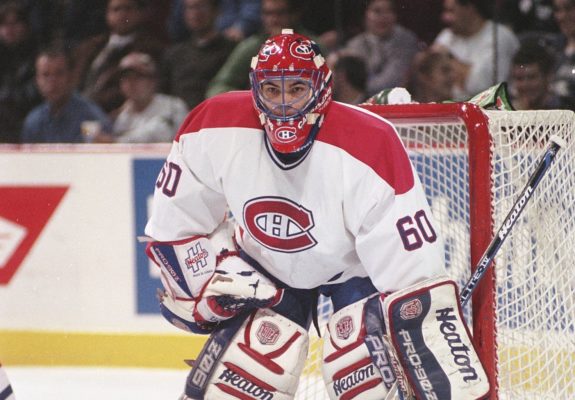
The underdog tag has been attached to the Canadiens for most of the 21st century, as Montreal is still waiting for a Stanley Cup-contending team to be built. Could this season be the start of something new, with a bright future?
The post Top 3 Montreal Canadiens Playoff Performances Since 2000 appeared first on The Hockey Writers.
Popular Articles

















































 Blackhawks Chicago
Blackhawks Chicago Panthers Florida
Panthers Florida Penguins Pittsburgh
Penguins Pittsburgh Rangers New York
Rangers New York Avalanche Colorado
Avalanche Colorado Kings Los Angeles
Kings Los Angeles Maple Leafs Toronto
Maple Leafs Toronto Bruins Boston
Bruins Boston Capitals Washington
Capitals Washington Flames Calgary
Flames Calgary Oilers Edmonton
Oilers Edmonton Golden Knights Vegas
Golden Knights Vegas Flyers Philadelphia
Flyers Philadelphia Senators Ottawa
Senators Ottawa Lightning Tampa Bay
Lightning Tampa Bay Red Wings Detroit
Red Wings Detroit Islanders New York
Islanders New York Sabres Buffalo
Sabres Buffalo Devils New Jersey
Devils New Jersey Hurricanes Carolina
Hurricanes Carolina Stars Dallas
Stars Dallas Jets Winnipeg
Jets Winnipeg Blue Jackets Columbus
Blue Jackets Columbus Predators Nashville
Predators Nashville Wild Minnesota
Wild Minnesota Blues St. Louis
Blues St. Louis Mammoth Utah
Mammoth Utah Ducks Anaheim
Ducks Anaheim Sharks San Jose
Sharks San Jose Canucks Vancouver
Canucks Vancouver






